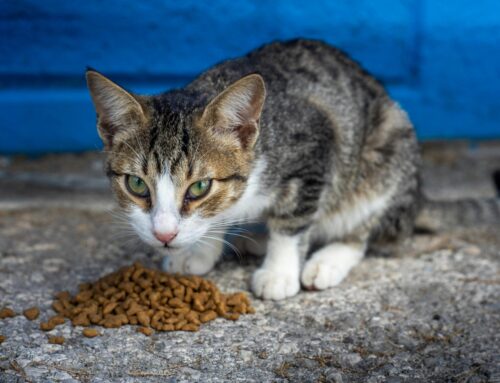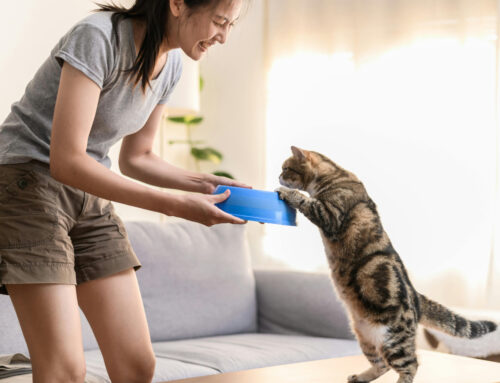Losing a beloved pet is one of life’s toughest challenges, and when you start feeling guilty or blaming others for their loss, it can be really confusing.
Avoiding the Blame Game
Resisting the Urge to Blame Others
Before we explore the intricacies of coping with guilt, it’s crucial to address the tendency to place blame on external factors. Avoid pointing fingers at your veterinarian, family, or friends. Pet health is a collaborative effort, and assigning blame can hinder the healing process. Acknowledge that everyone involved did their best with the information available at the time.
Placing blame on others when grappling with your pet’s death may provide temporary relief, but it ultimately obstructs the healing process. Recognize that veterinarians, family members, and friends likely acted with good intentions, doing their best to contribute to your pet’s well-being. A shift from blame to understanding fosters a healthier environment for coping.
Comprehending Your Emotions
Coming to Terms with Guilt
Guilt is a convoluted emotion that frequently accompanies the loss of a pet. It’s pivotal to recognize and acknowledge this sentiment as a customary response to such a profound loss. If you find yourself grappling with the notion, “my pet passed because of me,” it’s imperative to comprehend that this feeling is not uncommon among pet parents who have undergone loss.
It is essential to embrace the emotions associated with guilt rather than push them away. Guilt often arises from a sense of responsibility, but it’s crucial to recognize that not every outcome is within our control. Understanding that guilt is a normal response to loss allows for a more compassionate self-exploration.
Forgiving Oneself and Others
In the process of comprehending guilt, an essential aspect is forgiveness — both of oneself and others. Acknowledge that being human entails inherent limitations, and sometimes, despite our best efforts, outcomes may not align with our intentions. Forgive yourself for perceived
shortcomings, and extend the same grace to those who were part of your pet’s care. Forgiveness soothes the wounds of guilt, creating space for healing.
Recognizing the Uncontrollable
Just like people, pets can face various health issues that we can’t always prevent or control. Understanding that some factors leading to your pet’s passing were out of your hands can help ease the guilt. Sickness, accidents, and getting older are parts of pet ownership that we can’t always manage.
In acknowledging the uncontrollable factors, whether it be genetic predispositions, environmental influences, or unforeseen accidents, some aspects are simply beyond human influence. Embracing this reality is an integral part of coming to terms with the guilt associated with pet loss.
The Complexity of Pet Health
Pets can grapple with various health predicaments, ranging from genetic predispositions to environmental influences. Recognizing that pet health is multifaceted and influenced by a number of different factors can help you understand it’s not just one thing that caused their passing.
Understanding how various factors play a role in your pet’s health is like peeling back the layers. It’s important not to think that your actions alone caused your pet to pass away. Thinking about the many aspects of pet health gives you a more detailed view, helping to ease the guilt of believing “my pet died because of me.”
Learning from the Experience
Reflecting on the Care Provided
Take a moment to think about the love and care you gave your pet during their life. Remembering the care you provided to your pet offers an opportunity to highlight the positive aspects of your role as a pet owner. Instead of focusing on what you think you did wrong, think about the positive parts of your relationship – the love, attention, and care you consistently gave. Did you provide a nurturing home, routine veterinary care, and a fostering environment? Reflecting on the affirmatives can be an influential tool for self-forgiveness, and recognizing these positive contributions allows for a more balanced perspective on your role in your pet’s life.
Forgiving Oneself and Others Continued
Forgive yourself for any perceived inadequacies, understanding that the love and care you offered were genuine and significant. Similarly, extend forgiveness to others involved in your pet’s well-being journey. By releasing the grip of blame, you create room for understanding and, ultimately, healing.
Gaining Wisdom for the Future
Every challenging experience is an opportunity for personal growth. Take the lessons learned from losing your pet to improve your care for future pets. Rather than dwelling on guilt, see it as a chance to make positive changes. The pain of losing a pet can be a stepping stone to becoming a more informed and compassionate pet owner.
The loss of a pet doesn’t have to be solely marked by sorrow; it can be a catalyst for personal development. Instead of blaming yourself, see it as a turning point. Utilize the knowledge gained to elevate your pet ownership skills, fostering an environment where future pets can thrive. Turning pain into proactive change is a huge step toward healing.
Avoiding the Blame Game Continued
Fostering Understanding
Avoid creating a hostile environment during the already challenging time of pet loss by refraining from blaming others, be it your veterinarian, family, or friends. Creating an environment of understanding is key to promoting healing. Share your feelings openly without laying blame, cultivating a more supportive network during this difficult period. Use open communication and understanding. Share your feelings without pointing fingers, recognizing that everyone likely had the best intentions. Understanding their perspectives can contribute significantly to your healing process. Acknowledge that everyone played a role, operating within the constraints of their knowledge and capabilities.
Forgiving Oneself and Others Continued
Continuing on the theme of understanding, forgiveness, both for oneself and others, remains integral. Recognize that everyone involved, including yourself, acted with the information and resources available at the time. Forgiving others, whether they be family, friends, or the veterinary team, opens the door to mutual understanding and compassion. It’s a collective acknowledgment that, in the realm of pet care, shared responsibility exists.
Fate and Lack of Control over Death
Fate plays a role in life and death that we can’t control. The truth is, no matter how hard we try, death is something that will happen. Pets, just like people, have to deal with the unpredictable parts of life. Recognizing this isn’t admitting defeat but understanding how things naturally work. In life, fate creates things we can’t change.
Thinking about fate can bring comfort when you feel guilty about your pet passing away. It reminds you that, in life’s uncertainties, there are limits to what we can control. Fate has its own mysterious ways, and death, a part of the whole cycle, isn’t something we can manipulate. Embracing this understanding changes your perspective, easing the burden of blaming yourself and bringing a sense of peace.
Seeking Support
Opening Up to Loved Ones
Sharing your feelings with friends and family can give you the emotional support you need. Talking about your guilt out loud can help release the heavy emotions you’re carrying. During this challenging time, your loved ones can offer comfort and reassurance. Opening up about your feelings creates a connection and allows others to give you comfort. Sharing the burden of guilt through conversation can be a cathartic process, diminishing the weight you carry and paving the way for emotional healing.
Connecting with Pet Loss Communities
Participating in online or local pet loss support groups can connect you with individuals who have gone through similar experiences. Sharing anecdotes and coping strategies within these communities can be immensely therapeutic.
Connecting with pet loss communities broadens your support network. Engaging with individuals who have faced comparable challenges allows for shared understanding. Participating in discussions about the sentiment “my pet died because of me” within these communities brings diverse perspectives, offering both solace and valuable coping strategies. The shared experiences create a sense of camaraderie that aids in the healing process.
Coping Strategies
Embracing Self-Compassion
Practice self-compassion by recognizing that everyone makes mistakes, and unexpected things happen in life. Treat yourself with the same kindness and understanding you’d give to a friend going through a similar situation. Remember that it’s okay to be imperfect; this applies to both being human and being a pet owner.
Embracing self-compassion is crucial when dealing with guilt. Understand that making mistakes is a natural part of being human, and it allows for a more forgiving perspective on yourself. Being a pet owner means dealing with uncertainties; this is just a part of the human experience we all share.
Forgiving Oneself and Others Continued
In the realm of coping, forgiveness becomes an ongoing process. Forgive yourself for the moments of self-blame and guilt that resurface. It’s a continuous practice of releasing the burden you carry and acknowledging that healing is a multifaceted journey. Extend forgiveness to others involved in your pet’s care, fostering an environment of mutual understanding and compassion.
Creating a Memorial
Honoring your pet’s memory through a memorial can be a cathartic and healing process. This can be as straightforward as assembling a scrapbook, planting a tree, or contributing to a pet charity in your pet’s name. The act of creating a memorial provides a tangible outlet for grief and a way to celebrate the affirmative moments you shared. This transformative process offers closure by providing a meaningful outlet for emotions.
Moving Forward
Consider Adopting Again
While it might seem premature to contemplate bringing another pet into your life, adopting a new furry friend can provide healing and companionship. The love and care you bestowed upon your prior pet can be shared with a new one. If you are hesitant, contemplate fostering an animal in need of a home or volunteering at a local shelter to gauge your readiness for a new pet. This act may give you the chance to channel your love into a new and fulfilling connection.
Professional Help
If sentiments of guilt and grief become overwhelming, seeking the assistance of a therapist or counselor can be advantageous. They can provide a secure space for you to explore your emotions and offer guidance on the path to healing. A mental health professional experienced in pet loss can provide precise tools to cope with guilt and grief. Reflecting on therapy sessions can also become an integral part of the healing process.
Conclusion
Losing a pet is an exceedingly challenging experience, and the guilt correlated with feeling responsible for their death can seem insurmountable. Remember that healing takes time, and it’s acceptable to seek support from loved ones or professional resources. By comprehending and addressing your emotions, reflecting on the care you gave, and implementing coping strategies, you can navigate through the guilt and find a path toward restoration. Be kind to yourself during this difficult time, and remember that you are not alone in your journey.




